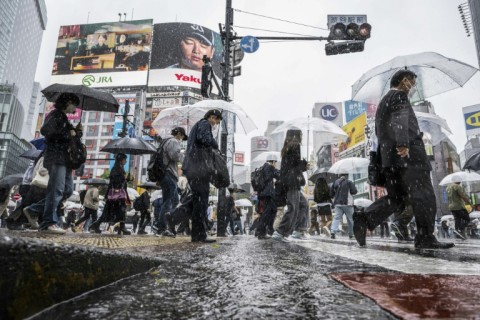
TOKYO - Hundreds of thousands of residents in Japan were urged to evacuate on Friday as tropical storm Mawar brought heavy rain, causing several rivers to overflow and leaving two people missing.
A non-compulsory evacuation order was issued to more than 410,000 people in Toyota in the central Aichi region, as well as in other parts of western and central Japan.
The highest evacuation alert -- which urges residents to immediately secure safety -- was issued to some 130,000 people in Toyohashi, also in Aichi, according to public broadcaster NHK.
Western Wakayama region saw several rivers burst their banks, and NHK footage showed a brown-coloured river in a Wakayama town covering railway tracks.
Two people were missing in Wakayama -- one washed away when a road flooded and another swept up by a river, NHK reported.
"We urge residents (in the affected areas) to be extremely vigilant against landslides, flooding and rising and overflowing rivers," top government spokesman Hirokazu Matsuno told reporters.
"Extremely heavy rainfall with thunderstorms are expected over a wide area from western to eastern Japan over the next three days" due to the storm, which has been downgraded from typhoon status, he added.
One person was seriously injured due to the heavy rain and seven suffered minor injuries as of mid-afternoon, Matsuno said, according to Jiji news agency.
Shinkansen bullet trains were suspended between Tokyo and Nagoya, according to Japan Railway.
NHK said more than 200 flights were cancelled in the afternoon.
Scientists say climate change is intensifying the risk of heavy rain in Japan and elsewhere, because a warmer atmosphere holds more water.
Strong rain in 2021 triggered a devastating landslide in the central resort town of Atami that killed 27 people.
And in 2018, floods and landslides killed more than 200 people in western Japan during the country's annual rainy season.
Earlier this week, Mawar -- then a typhoon -- passed just north of the Pacific island of Guam, uprooting trees and leaving tens of thousands of homes temporarily without power.

